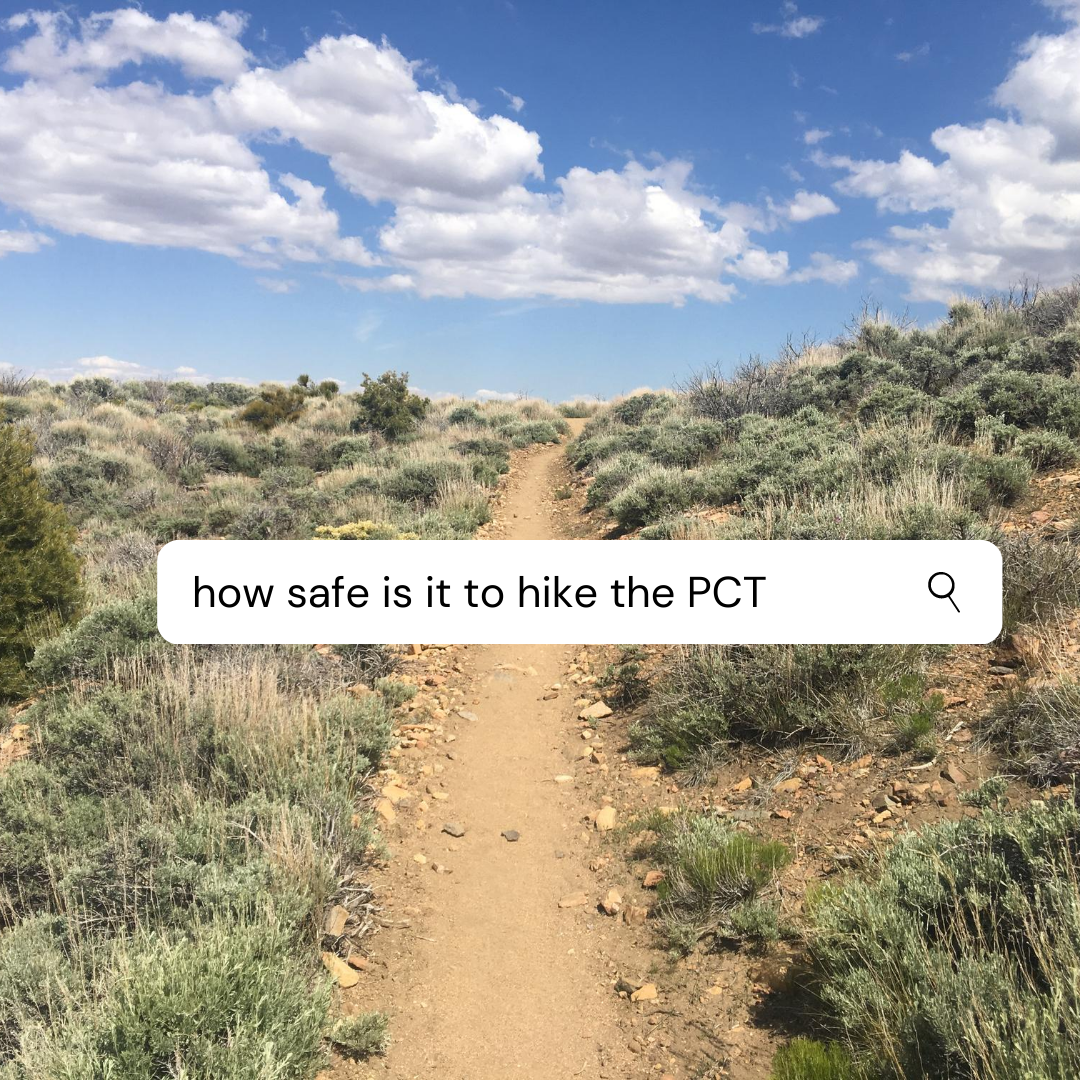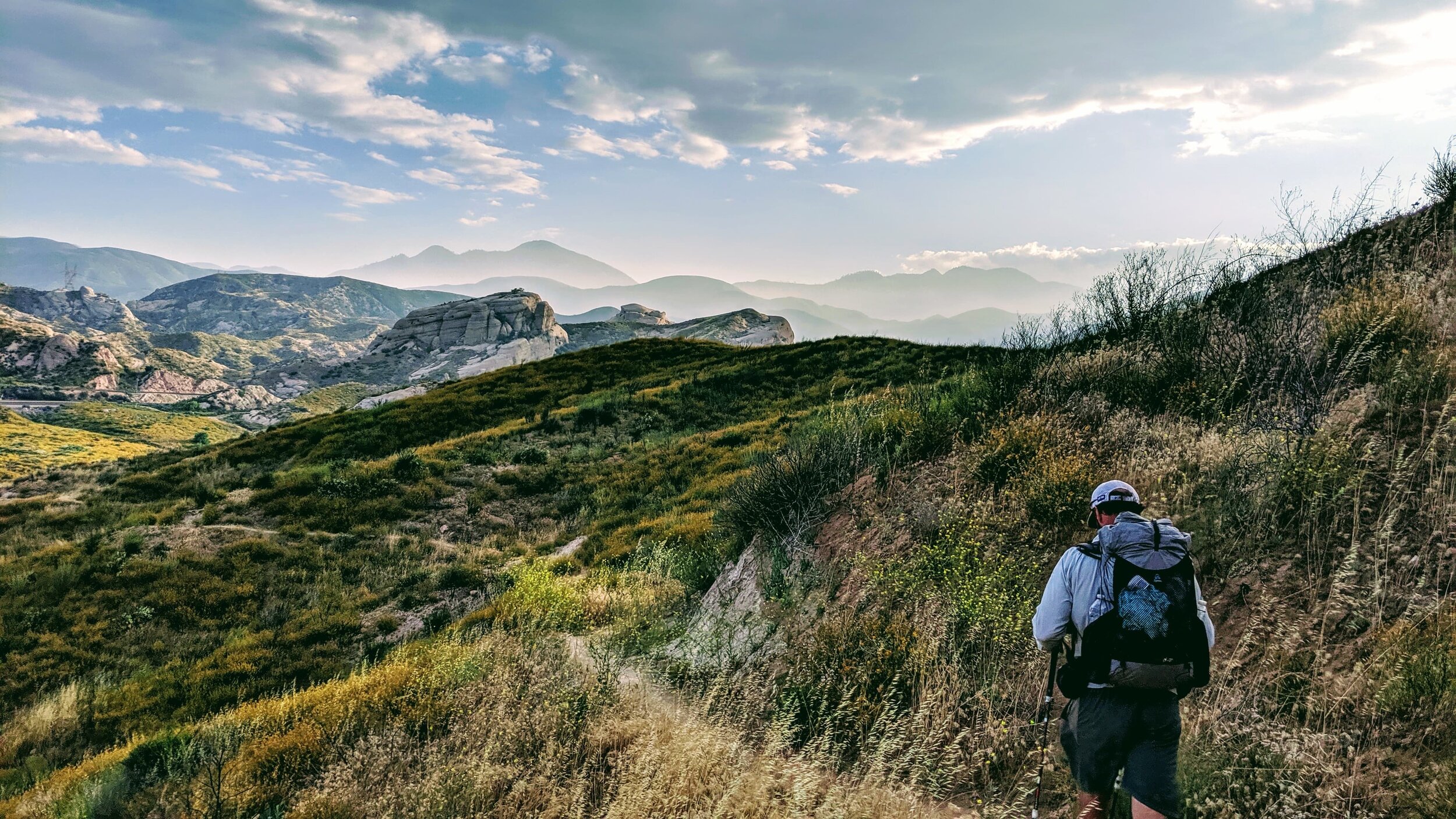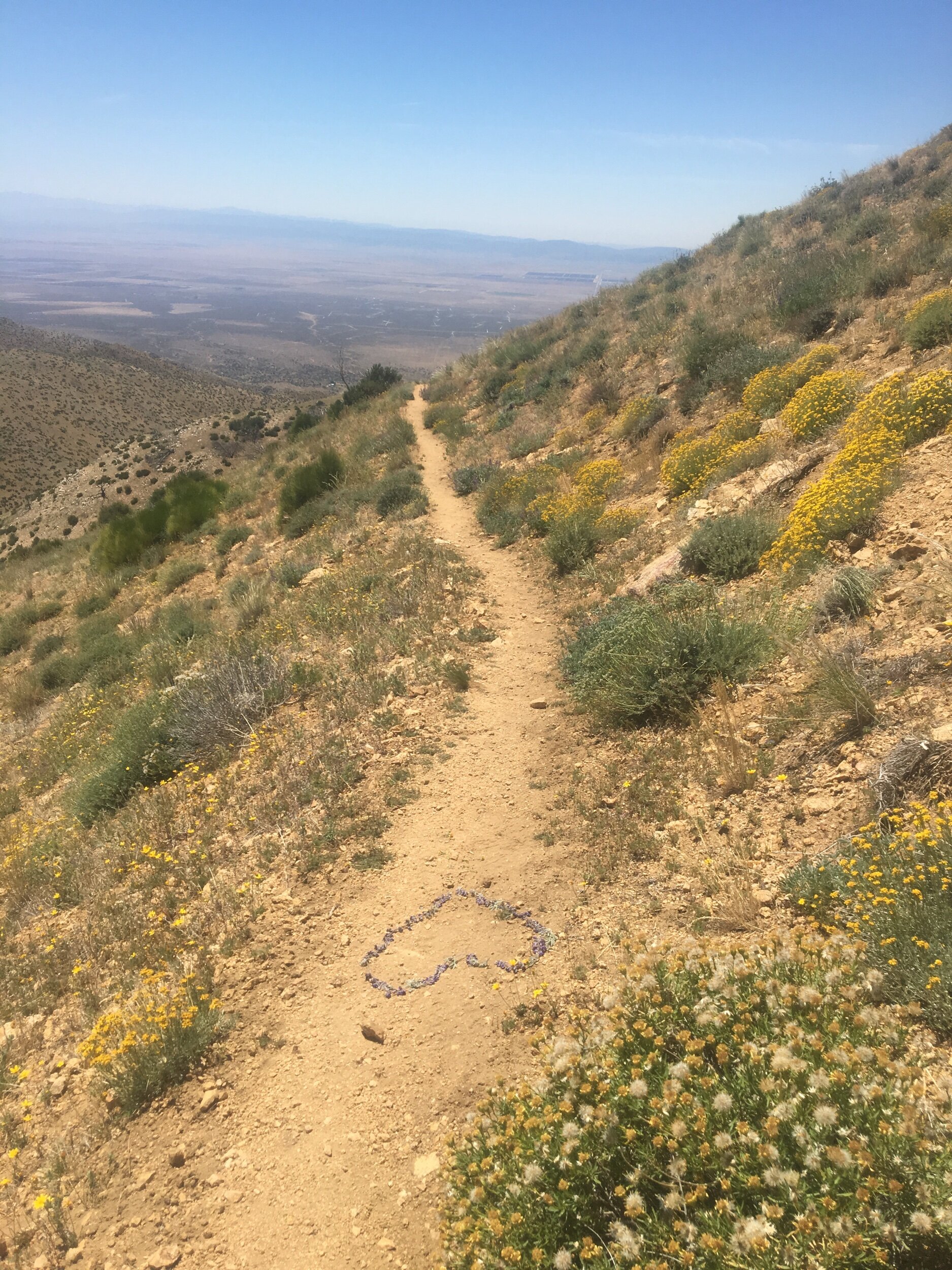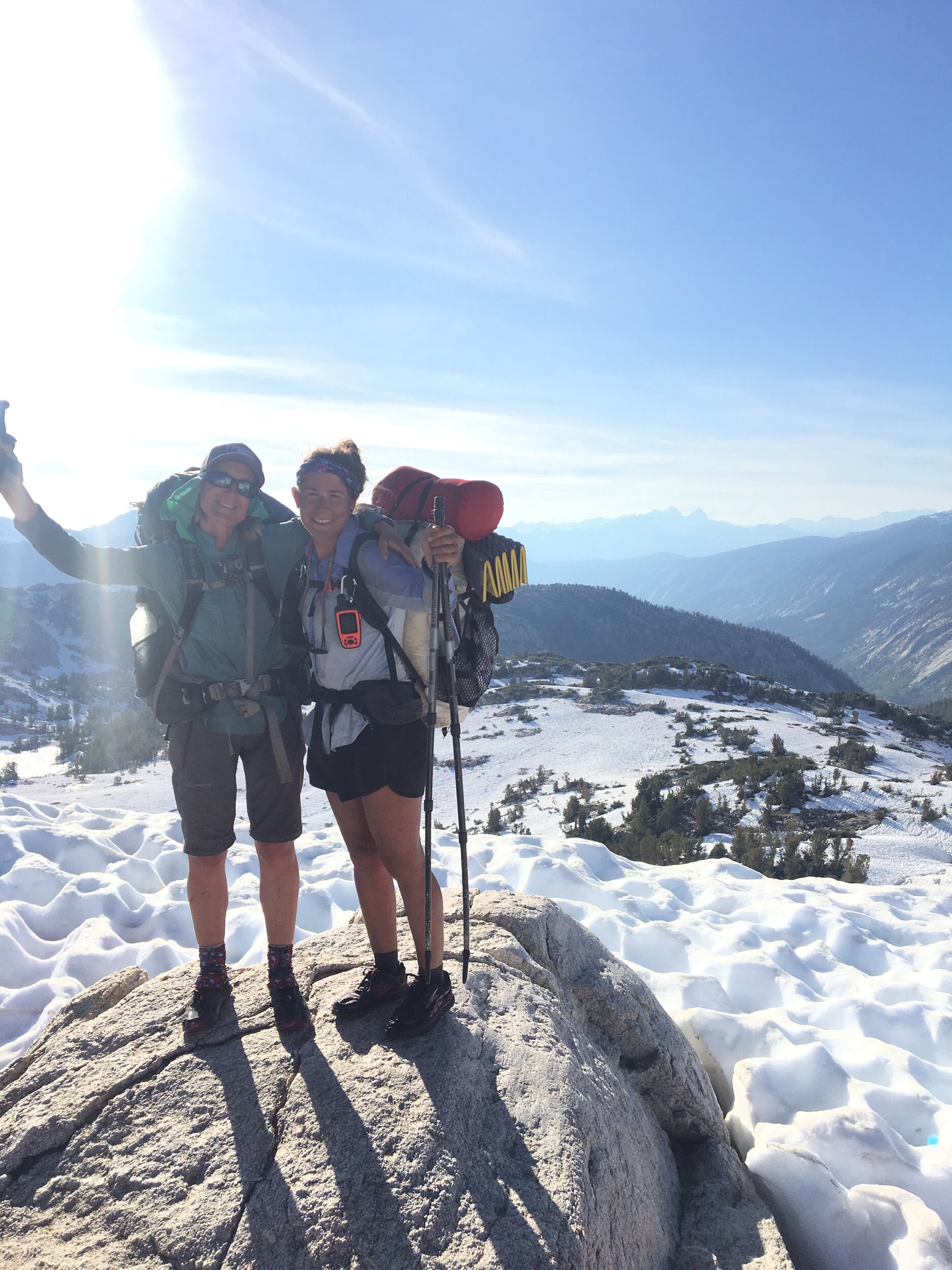Dear ‘PCT Class of 2022’ friends and family - they will be fine.
If the thought of your loved one hiking the Pacific Crest Trail is keeping you up at night, I got you!
Be their biggest cheerleader as they embark on an adventure of a lifetime, with this round up of what to expect before, during and after their hike.
What’s involved in hiking the Pacific Crest Trail?
Planning a long distance hike is all consuming, taking a lot of time and research. Yeah, it’s kind of a big deal!
You will be pleased to hear that the PCT is increasing in popularity every year, with a record number of people applying for permits in November 2021. In other words, they won’t be hiking alone and they are in for a truly amazing experience.
Of the three long distance thru-hikes in the USA (known as the Triple Crown of Hiking), the PCT is often cited as the most scenic.
What to expect before they start hiking.
There are two key things to sort out before they hit the trail - securing a permit from the Pacific Crest Trail Association (PCTA) and sorting out their food supply for certain sections of the trail.
PCT permits:
A permit is required to hike the PCT and securing their preferred start date is the first step.
Gaining permits for 2022 has been tough, due to high demand and a lot of people have been unsuccessful when the permit application opened for the first round in November 2021 and the second round in January 2022.
Planning can really kick into gear once their application has been processed and approved by the PCTA (takes 1-3 weeks). From this point, it’s officially on!
Re-supply strategy:
Hikers manage their food re-supply in many different ways, however it largely falls into one of two strategies:
Send boxes ahead - some hikers like to send food boxes ahead and collect at a Post Office in each town.
Re-supply on trail - some hikers prefer to re-supply on the trail, removing the need to send multiple boxes ahead (saving a lot of money on postage).
Hear from previous PCT hikers:
Learn more about the trail by reading what previous hikers had to say about their experience.
Check out 'Advice for the Pacific Crest Trail Class' - from the fabulous website, Halfway Anywhere.
Read about Chippy’s experience on the PCT trail in 2019!
Chippy, from Perth, hiking the Sierras in 2019.
Trail navigation:
The trail is well marked and the FarOut (formerly Guthook) app is fantastic, working offline so they will know where they are at all times.
Ask them to get the social check-in feature (you will need to download the app) so you can track their progress.
If they are carrying a GPS satellite device (e.g. SPOT or Garmin InReach), you will know where they are via GPS tracking.
It’s great for peace of mind as the device works when their mobile is out of service (for example, they can still send a text or notify emergency responders of their GPS location at a push of a button).
Training:
Don’t stress if they aren’t training! Rest assured, they will get their hiking legs on the trail.
For the first few weeks, most people average around 3 miles an hour and by the end of the hike they could be hiking anywhere from 25 to 30+ miles a day.
What to expect when they start hiking.
They aren’t going to know where they will be at a given point - it can be hard to pin-point the exact date and time when they will arrive at the next town, so you will need to be prepared to not hear from them for a few days at a time.
Camaraderie and sense of community on the trail - they will make fast friends as they share the ups and downs of hiking for miles everyday.
It’s all about the ‘tramily’ - if they are hiking with the same people for a while, they will become their trail family (tramily).
Food re-supply every 4 to 7 days - they will be heading into local towns every 4 to 7 days to re-supply food, take a shower, do their laundry etc.
Town days - They will stay in local hotels and motels, filling the room with as many hikers as possible to save money! Town days are a lot of fun and your best bet to talk to them.
Trail angels and trail magic - introducing your new best friends! Trail angels are local people who help thru-hikers with lifts to and from the trail to town, leave food on the trail (trail magic), host people at their house and most importantly, give great hugs when they need it!
It’s going to be tough to meet up - try not to take it personally if they can’t meet up with you as planned during their hike. It’s hard to leave your tramily or ask them to hang back for a few days (if you do meet up, they might have to leave their tramily behind).
When they call you from the trail - ask how many miles they hiked that day, when is their next town day, how is the tramily?
If they are talking about leaving the trail, try and fight the urge to tell them to come home. They will experience ups and downs on the trail and they might just need to vent.
They will be camping in the wilderness - there are no designated campsites on the trail, they will simply set up their tent or hammock in the backcountry.
Early exits - only one in four thru-hikers successfully complete their hike. There are many reasons why hikers exit the trail early - injuries are fairly common, as well as uncontrollable factors like big snow years and fires.
Local communities are used to hikers and are extremely hospitable - the local community surrounding the trail is welcoming to PCT hikers and they are used to seeing ‘hiker trash’ in their town!
What to expect when they return home.
Be supportive - get familiar with some hiker jargon and fight the temptation to roll your eyes when they start talking about their ‘tramily’ (trail family) and refer to their new friends by their trail name.
Next level supportive - if they are posting regular updates via Instagram or Facebook, why not print out their posts and keep them for when they return. Serious brownie points.
Thru-hiking is addictive - translation? They may want to do it again! A lot of people start with the PCT and then hike the Appalachian Trail or Continental Divide Trail.
They may come home with different views on life - spending months in the outdoors is going to leave a mark and it might be difficult for them to settle back into the swing of things straight away. Try and be supportive, as it might be hard to meet up with friends and family who don’t understand why they would want to hike for months and might appear to be critical of their different views.
Happy ‘trailversary’ - celebrate the 1st year anniversary of when they started their hike, it’s a date they won’t forget!















